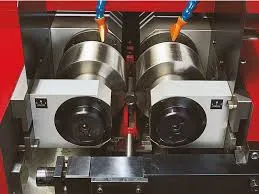
-
 Afrikaans
Afrikaans -
 Albanian
Albanian -
 Amharic
Amharic -
 Arabic
Arabic -
 Armenian
Armenian -
 Azerbaijani
Azerbaijani -
 Basque
Basque -
 Belarusian
Belarusian -
 Bengali
Bengali -
 Bosnian
Bosnian -
 Bulgarian
Bulgarian -
 Catalan
Catalan -
 Cebuano
Cebuano -
 Corsican
Corsican -
 Croatian
Croatian -
 Czech
Czech -
 Danish
Danish -
 Dutch
Dutch -
 English
English -
 Esperanto
Esperanto -
 Estonian
Estonian -
 Finnish
Finnish -
 French
French -
 Frisian
Frisian -
 Galician
Galician -
 Georgian
Georgian -
 German
German -
 Greek
Greek -
 Gujarati
Gujarati -
 Haitian Creole
Haitian Creole -
 hausa
hausa -
 hawaiian
hawaiian -
 Hebrew
Hebrew -
 Hindi
Hindi -
 Miao
Miao -
 Hungarian
Hungarian -
 Icelandic
Icelandic -
 igbo
igbo -
 Indonesian
Indonesian -
 irish
irish -
 Italian
Italian -
 Japanese
Japanese -
 Javanese
Javanese -
 Kannada
Kannada -
 kazakh
kazakh -
 Khmer
Khmer -
 Rwandese
Rwandese -
 Korean
Korean -
 Kurdish
Kurdish -
 Kyrgyz
Kyrgyz -
 Lao
Lao -
 Latin
Latin -
 Latvian
Latvian -
 Lithuanian
Lithuanian -
 Luxembourgish
Luxembourgish -
 Macedonian
Macedonian -
 Malgashi
Malgashi -
 Malay
Malay -
 Malayalam
Malayalam -
 Maltese
Maltese -
 Maori
Maori -
 Marathi
Marathi -
 Mongolian
Mongolian -
 Myanmar
Myanmar -
 Nepali
Nepali -
 Norwegian
Norwegian -
 Norwegian
Norwegian -
 Occitan
Occitan -
 Pashto
Pashto -
 Persian
Persian -
 Polish
Polish -
 Portuguese
Portuguese -
 Punjabi
Punjabi -
 Romanian
Romanian -
 Russian
Russian -
 Samoan
Samoan -
 Scottish Gaelic
Scottish Gaelic -
 Serbian
Serbian -
 Sesotho
Sesotho -
 Shona
Shona -
 Sindhi
Sindhi -
 Sinhala
Sinhala -
 Slovak
Slovak -
 Slovenian
Slovenian -
 Somali
Somali -
 Spanish
Spanish -
 Sundanese
Sundanese -
 Swahili
Swahili -
 Swedish
Swedish -
 Tagalog
Tagalog -
 Tajik
Tajik -
 Tamil
Tamil -
 Tatar
Tatar -
 Telugu
Telugu -
 Thai
Thai -
 Turkish
Turkish -
 Turkmen
Turkmen -
 Ukrainian
Ukrainian -
 Urdu
Urdu -
 Uighur
Uighur -
 Uzbek
Uzbek -
 Vietnamese
Vietnamese -
 Welsh
Welsh -
 Bantu
Bantu -
 Yiddish
Yiddish -
 Yoruba
Yoruba -
 Zulu
Zulu
Achieving CE Certification for Thread Rolling Machinery and Equipment in Industrial Applications
CE Certification for Thread Rolling Equipment Ensuring Safety and Quality in Manufacturing
Thread rolling is a prevalent manufacturing process used to produce high-strength threads with superior surface finishes. This cold-forming technique is widely employed in various industries, including automotive, aerospace, and machinery, due to its efficiency and the mechanical properties of the threaded components produced. However, with the increasing focus on safety, quality, and environmental standards in manufacturing, CE certification for thread rolling equipment has become paramount.
Understanding CE Certification
CE marking is a certification mark that indicates conformity with health, safety, and environmental protection standards for products sold within the European Economic Area (EEA). It signifies that the product has been assessed and meets the essential requirements of relevant European directives. For manufacturers of thread rolling equipment, obtaining CE certification is not just a regulatory obligation but a testament to the equipment's safety and reliability.
The process of CE certification involves rigorous testing and evaluation against a set of European standards. This typically includes an assessment of the design, manufacturing processes, and risks associated with the equipment. By achieving CE compliance, manufacturers can ensure that their thread rolling machines operate safely and effectively while minimizing the risk of workplace injuries and equipment failures.
Importance of CE Certification in Thread Rolling Equipment
1. Quality Assurance CE certification provides assurance that the thread rolling equipment adheres to strict quality standards. This is crucial for manufacturers who require consistency and precision in their products. High-quality thread rolling equipment results in improved product durability, fewer defects, and enhanced overall performance.
ce certification thread rolling equipment

2. Market Access For businesses aiming to sell their equipment in the European market, CE certification is mandatory. This certification opens doors to international markets, allowing manufacturers to expand their reach and increase sales. Without CE marking, manufacturers may face restrictions or prohibitions in marketing their products within the EEA.
3. Enhanced Safety One of the primary objectives of CE certification is to ensure the safety of machinery. Thread rolling equipment can pose significant risks if not designed or operated correctly. CE certification helps identify and mitigate these risks, providing guidelines for safe operation and maintenance that protect workers from hazards.
4. Environmental Considerations CE certification requires manufacturers to consider the environmental impact of their equipment. This includes evaluating energy efficiency, waste management, and resource consumption during production. Adopting eco-friendly practices not only complies with regulations but also enhances the brand’s reputation in an increasingly environmentally conscious market.
5. Continuous Improvement The process of attaining CE certification encourages manufacturers to continually review and improve their equipment and processes. This can lead to innovations and advancements in technology, contributing to better performance and efficiency in thread rolling operations.
Conclusion
In today's competitive manufacturing landscape, CE certification for thread rolling equipment is not merely a regulatory checkbox; it is a strategic advantage. By ensuring compliance with European standards, manufacturers not only enhance the safety and quality of their machinery but also position themselves as credible players in the global market. As industries continue to evolve, the emphasis on safety, quality, and environmental sustainability will only grow, making CE certification an essential consideration for any manufacturer involved in thread rolling processes. Investing in certified equipment ultimately leads to greater trust from customers, improved product quality, and long-term business success.
